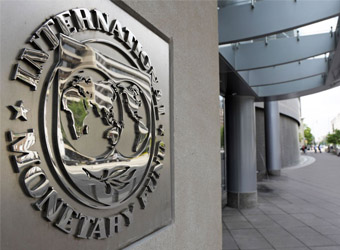Egypt needs broad structural measures, not stopgap financing, as part of a package from the International Monetary Fund to address its budget deficit, a cabinet member said Sunday.
“The help we are requesting from the I.M.F. is not quick fixes,” the cabinet member, Ashraf al-Araby, the minister for planning and international cooperation, said at a news conference.
With President Mohamed Morsi struggling to contain violent protests, new figures released Sunday showed a jump in inflation, which will hurt the poor hardest and is likely to stir yet more social unrest.
Cairo says it wants to reopen talks with the I.M.F. on a $4.8 billion loan that was put on hold during rioting last December.
The fund has yet to respond publicly to the invitation.
Some analysts have said that the fund seems reluctant to negotiate on a full deal during the current political upheaval and that it might offer short-term financing that would be modest in size but without many of the conditions demanding painful reforms that would come with a full program.
“It is not suggested that we obtain a bridging loan,” Mr. Araby said. “This is offered by the I.M.F. in its negotiations with many countries. In our case, we do not need bridging loans.”
Mr. Araby did not say explicitly whether the fund had offered Egypt such short-term financing.
Last month, Mr. Morsi called for elections between April and June, but a court later canceled his decree, throwing the electoral process into limbo.
Cairo’s problems are daunting. Foreign currency reserves have fallen to about a third of their levels before the 2011 revolution, forcing the central bank to ration dollars.
This is crippling many smaller and midsize firms, which often turn to the black market because banks make them wait months to get currency at the official rate.
On top of that, the government’s budget deficit is climbing to unaffordable levels and the Egyptian pound is sliding.
New York Times
